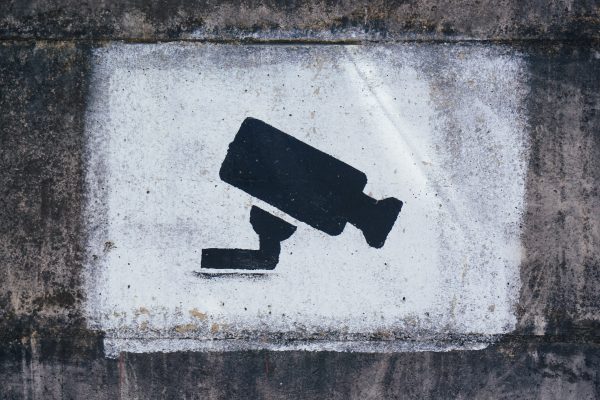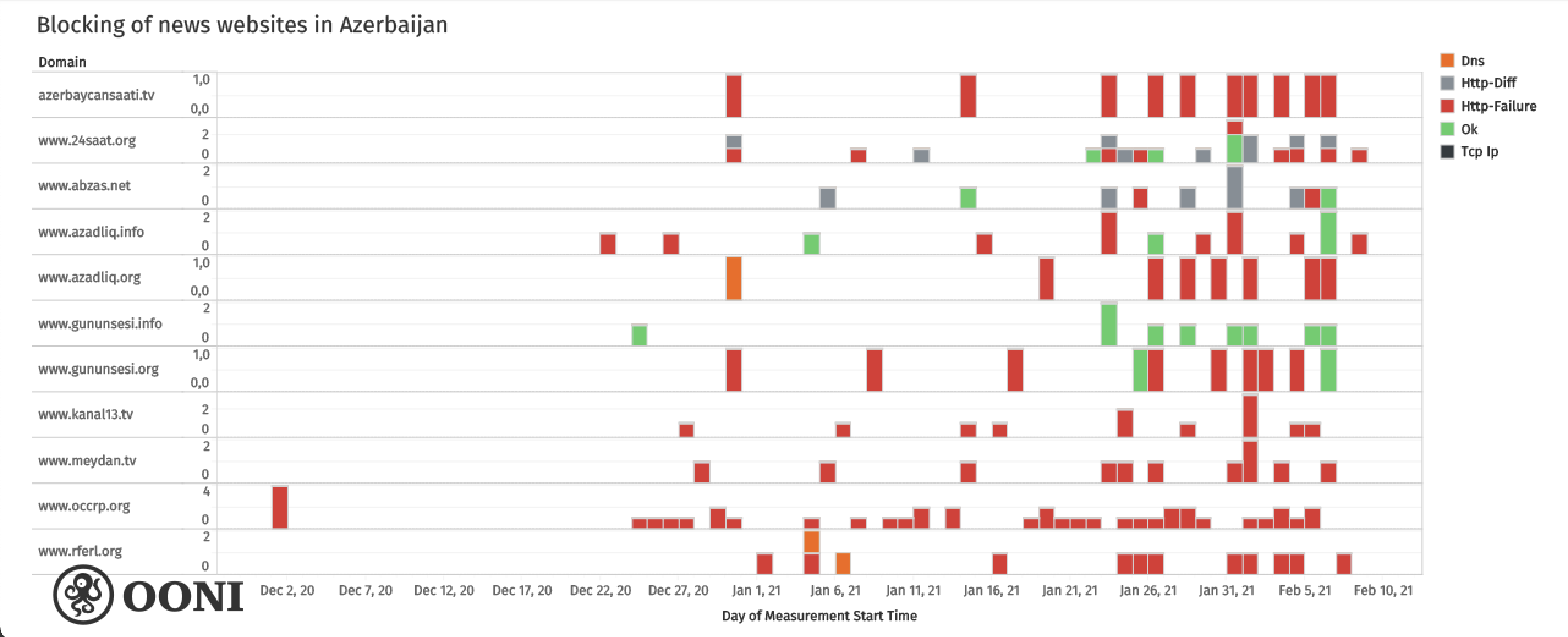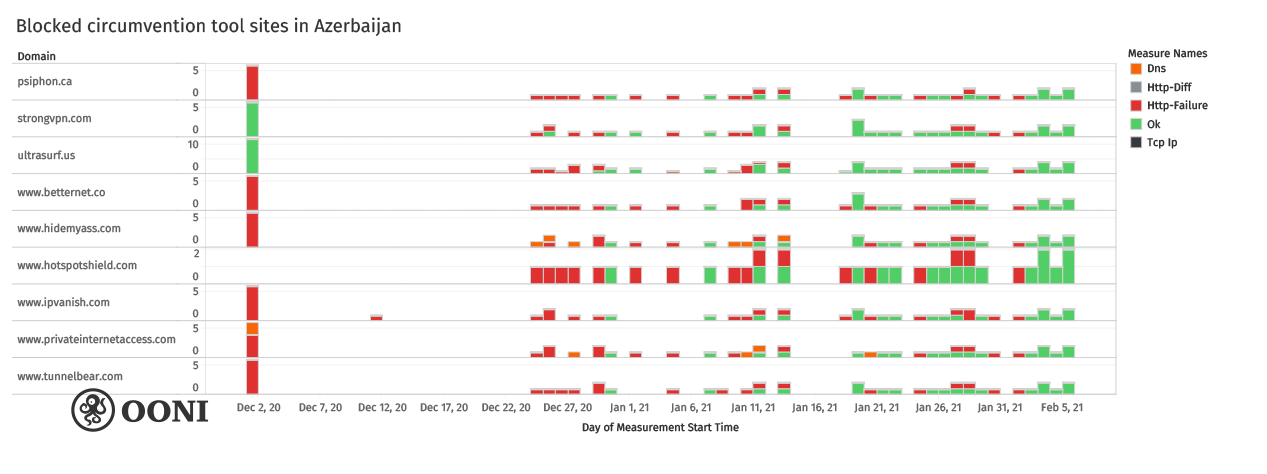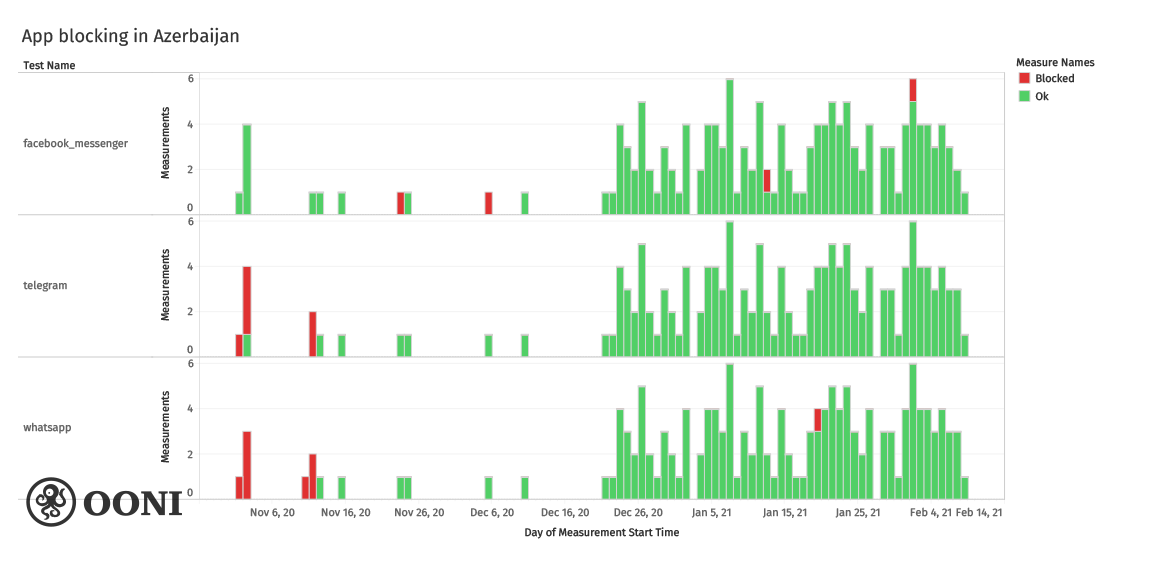[Update February 24] The pre-trial detention period of Abzas Media journalist Nargiz Abusalamova was extended by another three months.
[Update February 21] Kanal 13 director Aziz Orujov’s pre-trial detention was extended by another month.
[Update January 13] Police arrested another Abzas Media journalist – Elnara Gasimova. She was sentenced to pretrial detention on January 15, 2024, for a period of two months and 17 days. She is facing the same charges as the rest of the journalists from Abzas Media, and if found guilty, she faces between six months and eight years in prison and a fine.
[Update December 4] Following the arrests of Kekalov, Vagifgizi, and Hasanli, three more journalists were arrested. Among them are Nargiz Abusalamova (Abzas Media reporter), Aziz Orujov (founder of online television channel Kanal 13), and Rufat Muradli (the host of the show on Kanal 13). There were also reports of a hacking attempt on Kanal 13’s YouTube channel. At least two videos were removed from the channel before Orujov’s brother could secure access to the account.
Abusalamova was questioned earlier as a witness in the investigation launched against Abzas Media. Still, authorities arrested the journalist on December 1 and sentenced her to three months in pre-trial detention. Speaking to journalists, Absalamova’s lawyer said the accusations were baseless, “The court argued that Absalamova can aid others involved in the case and hence, to prevent that from happening, her arrest was necessary.”
[Update November 23] Mahammad Kekalov was also sentenced to three months and 27 days on the same charges. Kekalov’s lawyer, Rovshana Rahimli, told Abzas Media she finally had a chance to meet Kekalov on November 23. During the meeting, Kekalov refused to proceed with Rahimli. He told her he had already been assigned a state lawyer and that he had committed no crime and would continue working with the state-assigned lawyer. The meeting took place in the presence of a state investigator. Friends and acquaintances fear Kekalov made this decision under duress. This request was not granted despite the lawyer’s attempts to meet Kekalov without any state representative. “I was surprised to hear Kekalov’s decision. He knows me. And despite me telling him that his family hired me, he pressed with his decision. He was very calm when we talked. And he did not explain the reason why he decided to refuse my services.” In addition, several other journalists were questioned as part of the investigation on November 23 – Nargiz Absalamova, Sahila Aslanova, Mina Alyarli, and Elnare Gasimova. Ulvi Hasanli’s wife, Rubaba Guliyeva, was also questioned.
[Update] Both Ulvi Hasanli and Sevinc Vagifgizi were sentenced by the Khatai District Court. Hasanli was sentenced to four months in pretrial detention, while Vagifgizi to three months and 29 days.
[Update] Sevinc Vagifgizi, who was en route to Baku [on the flight from Istanbul] on November 20, was also detained at the airport, according to reporting by independent Meydan TV. Several Azerbaijani activists who were on the same flight with her told Meydan TV she was detained once the plane landed in Azerbaijan. In an interview with Meydan TV at the airport before boarding her flight to Baku, Vagifgizi said she is certain that Hasanli’s arrest is directly related to the investigative work by Abzas media on the corruption among companies owned by individuals related to the ruling family doing business in Karabakh. Meanwhile, lawyer Zibeyde Sadighova told Meydan TV that Ulvi Hasanli is being charged with smuggling large amounts of goods or other subjects on preliminary arrangement by a group of persons [Article 206.3.2 of the Criminal Code of Azerbaijan]. On November 21, Vagifgizi was charged on similar grounds. According to Abzas media, Mahammad Kekalov, who writes about people with disabilities, was also detained on November 20. He was taken from his house against his will by plain-clothed police officers.
Abzas media also released an audio recording of Hasanli explaining what happened: “I was about to get into the taxi leaving my apartment, a car stopped in front of the taxi and a bunch of men showed up. They were all wearing masks. They called my name. I cannot recall at which point exactly I was hit. They took me there and brought me to the police station. We started arguing. Two officers hit me. Then the questioning began. They asked me why we [Abzas] did not write about Karabakh but instead wrote about corruption. “Aren’t there other problems to write about,” they asked me. The money [police claim to have found] was planted there, it is so obvious. Because of the place where they allegedly found it. It was in the hallway of the office, not even inside one of the rooms [clearly someone just dropped it there].” In a statement shared by Abaz media on their Facebook page, the platform said, “As Abzas media we inform you, that Hasanli’s detention, the search at his house and on the promises of the office, are unlawful. All that is happening is directly related to [Hasanli’s] journalism. We demand immediate release of Hasanli.”
In an interview with Turan News Agency, the platform’s editor-in-chief, Sevinc Vagifgizi said, “Ulvi left home at 4.30 AM and was headed to the airport. However, he never boarded the plane and has not been in touch since.” Vagifgizi added she suspected Hasanli was detained at the airport.
Az-Net Watch spoke to Hasanli’s lawyer, Zibeyde Sadishova, who confirmed that Hasanli was indeed detained, except detention took place at Hasanli’s home as he was getting ready to leave. The police searched both Hasanli’s home and the office of Abzas Media. In the latter’s case, police claimed they had discovered 40,000EUR in cash. Hasanli denied having any connection to the money. It is suspected police planted the cash during the search.
Meanwhile, the lawyer also confirmed that the home of Vagifgizi was also searched. The police did not find anything there. According to the lawyer, Hasanli was beaten by the police.
Hasanli was most recently detained at the US Embassy in Baku when he filmed the flash mob organized by feminist activists in July 2023. A month prior, in June, Hasanli was questioned over a Facebook post that police asked he remove. In the post, Hasanli shared the pictures of two police officers who were in charge of detaining journalists covering an environmental protest outside of the capital.
Since 2016, Absaz media has been targeted with DDoS attacks. In 2017, the website was blocked from access inside the country, forcing the website managers to switch the website’s extension. In April 2020, the website was hacked and, as a result, lost a month’s worth of published articles, and some of the headlines changed. The platform was targeted again in February 2021.
![Editor of an online news site arrested [Updated February 24, 2024]](https://www.az-netwatch.org/wp-content/uploads/2023/11/Screenshot-2023-11-20-at-1.54.47 PM-600x327.png)






![news agency website DDoSed [updated]](https://www.az-netwatch.org/wp-content/uploads/2019/11/internet-screen-security-protection-60504-min.jpg)